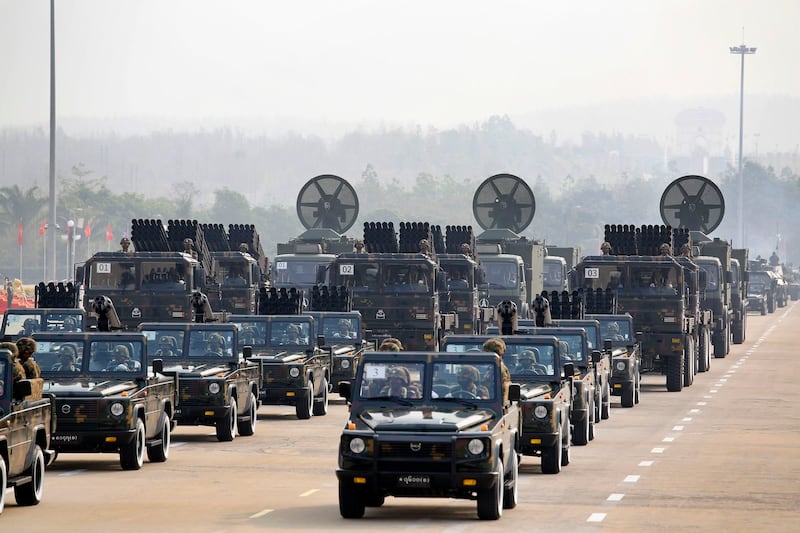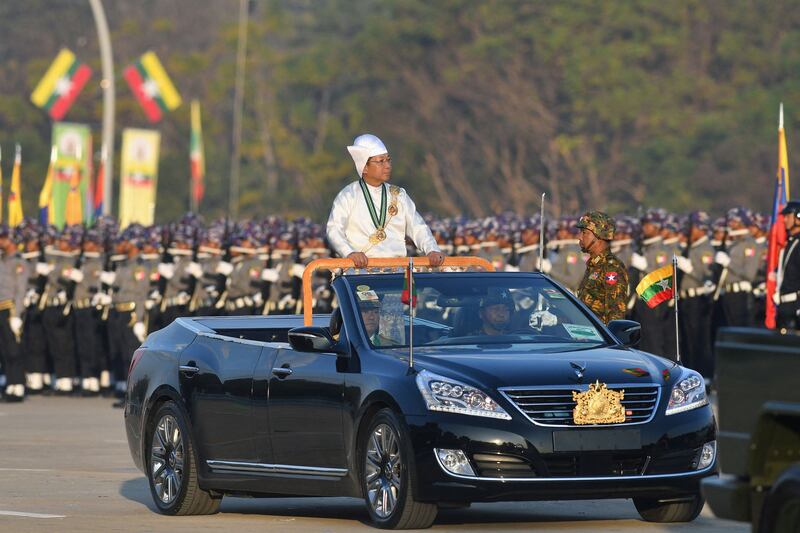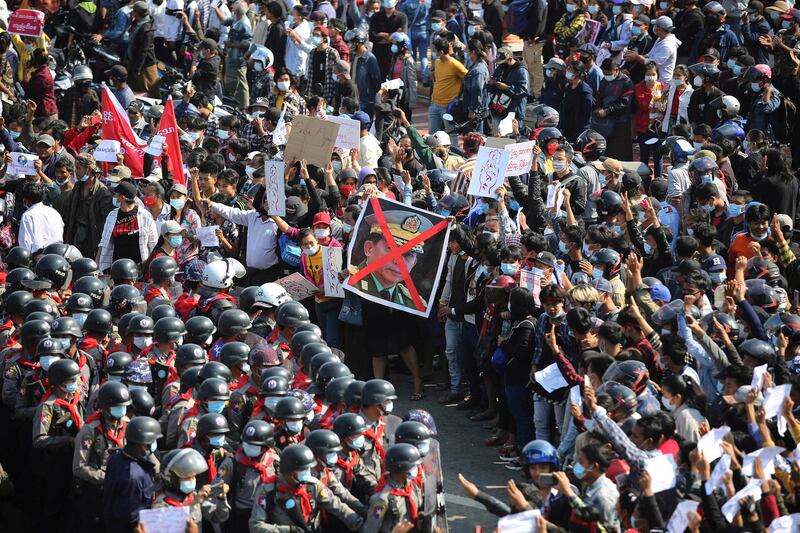An increase in Myanmar’s defense budget of nearly U.S.$1 billion will fuel the country’s brutal civil war and lead to more civilian deaths, observers said Wednesday, calling for urgent action by the international community to cut off the junta’s access to income.
The increase comes after junta chief Senior Gen. Min Aung Hlaing acknowledged that the military only effectively controls around two-thirds of the country, despite a nationwide offensive by junta troops who have visited death, arson, sexual violence, and torture on the people of Myanmar in the 26 months since the military seized power in a coup d’etat.
It also follows an Armed Forces Day speech by the military commander in which he vowed to “eradicate” the country’s opposition.
According to the budget, which Min Aung Hlaing approved on April 5, defense spending for the fiscal year 2023-2024 was set at 5.6 trillion kyats (U.S.$2.7 billion). The new figure represents an increase of U.S.$920 million over the previous fiscal year’s budget of U.S.$1.8 billion.

Thein Tun Oo, the executive director of the Thayninga Institute for Strategic Studies, a group made up of former military officers, defended the increase, saying that it is intended not to suppress internal armed conflict, but to “upgrade” the military to a more “modern standard.”
“It’s not surprising that the military budget has to be increased in order to keep up with advancing defense technologies,” he said, adding that he estimates upgrading the military “will require two-thirds of the entire budget.”
But Aung Myo Min, human rights minister for the shadow National Unity Government, told RFA that the size of the military’s budget is directly proportional to the number of civilian deaths in the country.
“The more weapons the military buys, the more people suffer because, throughout the period of military expansion, there have been more and more killings of innocent civilians, more air attacks using the jet fuel imported from foreign countries and more burning of civilian properties,” he said.
“Increasing the budget to expand the military under the current circumstances is literally reinforcing the junta with more weapons to kill more innocent people. It will definitely cause more civilian deaths.”

Aung Myo Min said that the international community needs to take urgent and effective legal action against the junta to hold it accountable for the atrocities it has committed and block the sources of income that enable it to increase its military budget.
Fight for control of the country
According to Thailand’s Assistance Association for Political Prisoners (Burma), authorities in Myanmar have killed at least 3,240 civilians since the Feb. 1, 2021 coup – many during the military’s widespread scorched earth offensive against anti-junta armed groups and ethnic armies.
And yet, after more than two years in power, Min Aung Hlaing recently acknowledged that he is only in control of 198 of the country’s 330 townships. Since making the comments, military forces have accelerated clearing operations in Sagaing, Magwe, Bago and Tanintharyi regions, as well as Chin, Kachin, Kayin, Mon and Shan states.

Sai Kyi Zin Soe, a political analyst, believes that the increase in the junta’s military spending is part of a bid to complete these operations.
“The military needs a larger budget to meet quotas within its armed forces and to attack the resistance forces more severely,” he said.
“The junta chief announced in his March 27 [Armed Forces Day] speech that the military will crush the resistance forces. He said he will crush not just the increasing number of resistance forces across the country, but also the ethnic armed groups that support those forces. I think that is the reason for the junta’s increase in military budget.”
The junta has increased its defense spending every year since the 2020-2021 fiscal year, when Aung San Suu Kyi’s deposed National League for Democracy last set the military budget at 3.4 trillion kyats (U.S.$1.6 billion).
Translated by Myo Min Aung. Edited by Joshua Lipes and Matthew Reed.
